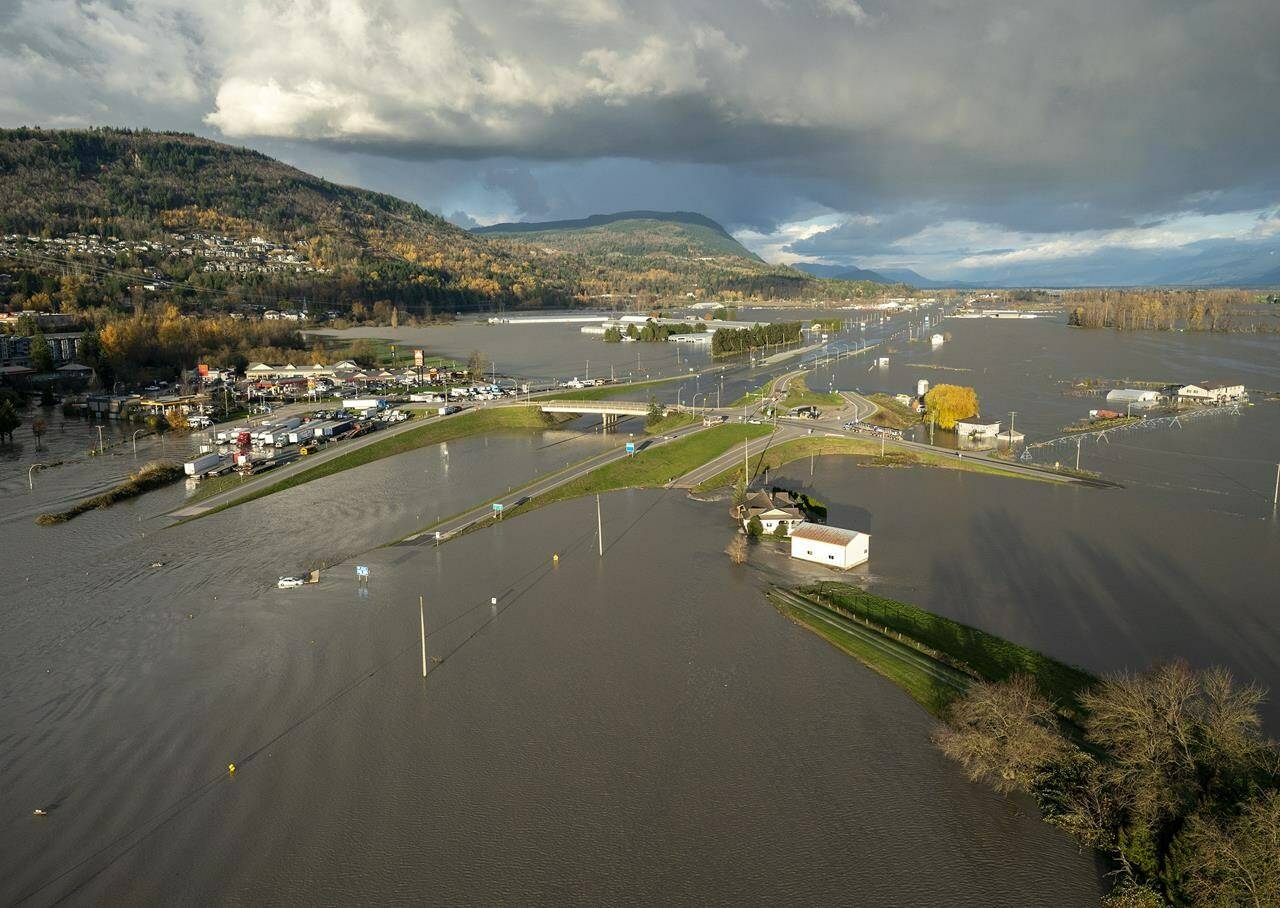BC’s cannabis industry is bracing for difficulties with getting products to distributors and stores after storms, massive floods and mudslides hit the province this week.
Several cannabis companies say portions of their facilities are submerged in water, communities where their pot shops are located have been evacuated and some major roads they use to transport products have been completely wiped out.
They expect it will take longer than usual for products to make it to consumer hands as the stormy conditions hamper deliveries, drive up costs and make their already slim margins on many products even thinner.
“It’s one of those things that is devastating to business,” said Alex Read, president of Jima Cannabis.
The BC-based pot shop chain’s Abbotsford location, which opened in July, has been shut down for days as water poured through the community and buried a local highway the company uses for shipments.
On Tuesday evening, the region issued evacuation orders as a local pumping station neared the brink of failure.
Jima staff have been nervously watching the Abbotsford shop’s security cameras, hoping water doesn’t seep into the store.
But even without the store flooding, Read expects trouble for the industry.
“It’s going to have a great ripple effect with getting products in and out because it’s impossible to even get into the area at the moment,” he said.
Read worries cannabis retailers will have an even harder time grappling with the disruptions because stringent regulations mean deliveries can’t be handled by just anyone.
While a lot of cannabis travels by truck across the province, so many roads being washed out mean that’s no longer an option for many deliveries, said Lisa Campbell, chief executive at cannabis marketing company Mercari Agency.
Her BC clients are considering shipping products by air — an expensive endeavour for an industry filled with companies struggling to reach profitability.
“The cost of fuel is going up and even the cost of ground shipping has gone up, so it’s definitely going to eat into everyone’s margins,” said Campbell.
Several businesses are also worried about getting their shipments from the provincial pot distributor, which warned of delivery delays Tuesday.
“The next few weeks, we are super unsure if the stores in the interior will even be able to order from the BC Liquor Distribution Branch because there’s no roads from the warehouse to ship to them,” Campbell said.
“It will affect product coming into warehouses, so (pot businesses) might have some shortages and it will also affect product going out to retailers.”
Logan Dunn, the chief executive of Abbotsford micro cultivator Dunn Cannabis, has similar worries because the storms came in an already terrible year for pot companies.
Many cannabis farmers in the province faced extreme heat and wildfires over the summer, as the industry was plotting a recovery from COVID-19 shutdowns that have stymied the globe for almost two years.
“We’ve really been put through the wringer in the last few years,” said Dunn.
“I thought we were out of the woods, when (COVID-19) restrictions were being eased and the weather changing, but now it’s changing yet again, throwing another curveball at us.”
His business is lucky to be located on higher ground, but he’s heard of others whose facilities are underwater and fears supply chain issues for small pot companies impacted by the weather will emerge just as the holiday season nears.
“The larger players have a lot more ability,” he said.
“The small producers and our partners like processors might not have that ability to get products where they need to go in a timely manner.”
His heart breaks for companies struggling with the situation, but safety comes first, he said.
“It’s really hard for a lot of people, but we can always grow pot again.”
– Tara Deschamps, The Canadian Press

